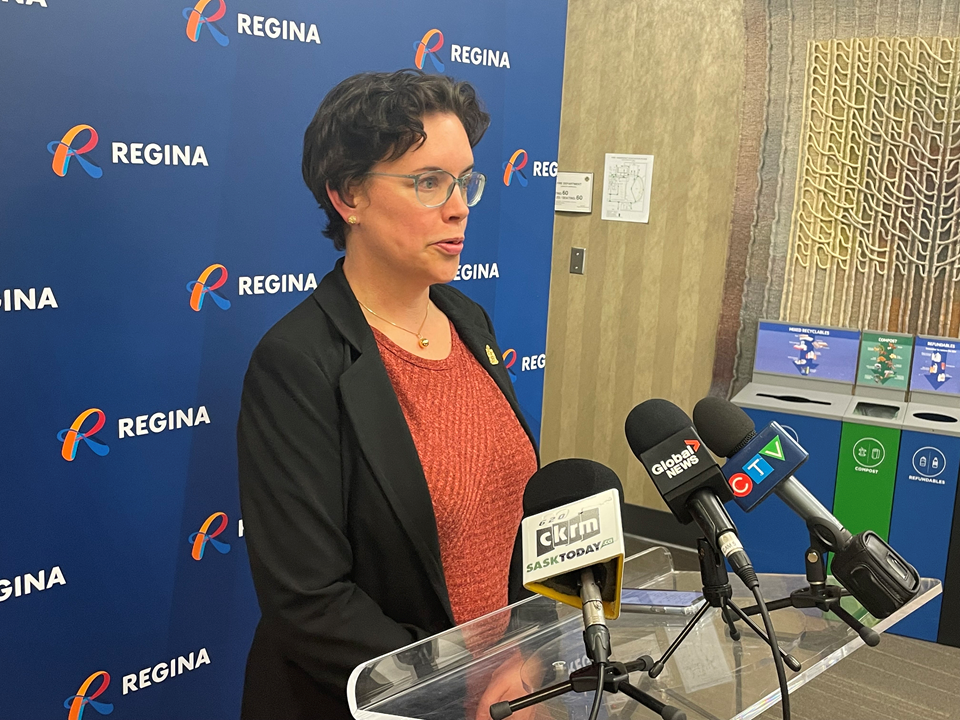REGINA - City council held a special meeting on Wednesday to discuss the potential dissolution of the Community and Social Impact Regina Inc. (CSIR).
The incorporation of CSIR came originally after the creation of the Community Safety and Well-Being (CSWB) plan in 2021. At the time, city administration presented two options to combat the social and health needs of those most vulnerable. One was the city-led structure of CSWB.
The other would eventually be the external option, CSIR. The previous city council agreed a corporation outside the city would be an effective way to tackle this, so CSIR was incorporated in Sept. 2022.
However, the city identified that the (CSWB) plan aligns with the same goals and priorities as the CSIR. The CSWB focuses on six key areas: food insecurity, safety, service system, racism & discrimination, domestic violence and intimate partner violence and substance use.
As for the CSIR, it aimed to "create, facilitate and monitor coordinated community and social impact strategies to support the well-being, health, safety, and social inclusion of residents in Regina",on the city’s website. There is no information available regarding any plans or projects the CSIR contributed to, and it’s not clear if that will become public.
With that in mind, considering the two options had similar goals, city administration found the option to dissolve the CSIR as the best course.
Additionally, the dissolution of the CSIR would increase efficiency and process, the report pointed out. Mayor Chad Bachynski discussed the dissolution during the executive committee meeting, "The goal of this [motion] is to really improve efficiency, remove layers of.. bureaucracy and… layers of oversight."
A report for the motion outlined that the city would fund upwards of $1.6 million toward the dissolution of the CSIR if the group couldn’t fund the full amount through its existing assets. Deputy Mayor Shanon Zachidniak clarified that the CSIR had some leftover money from the 2024 budget and reserves, so those could potentially cover all the dissolution costs.
The potential $1.6 million the city could use to address key issues with those most vulnerable was a talking point for Regina city councillors.
During the executive committee meeting before the special city council, Ward 3 coun. David Froh put forward a friendly amendment, which would use all or any leftover money from the $1.6 million given to the CSIR now and in the future towards the CSWB plan.
Froh mentioned hearing from his residents about their worries regarding increases in taxes and utility bill costs from the proposed 2025 budget.
Even with all the concerns, Froh said, "I think it would be wise not to try to adjust or address rather our budget challenges on the backs of the most vulnerable in our community."
Bachynski also added his point to the amendment that any potential duplicating staffing costs could be covered by the $1.6 million.
Ward 1 coun. Dan Rashovich highlighted that the city needs to start looking at items that could be overlapping, like how the CSIR was with the CSWB, "because we need to watch our dollars as a city."
After Regina city council passed the motion at the executive committee meeting, it was then quickly passed at the special city council meeting.
With the motion approved, the city administration expects the CSIR to complete the dissolution by June 30, 2025.
Additionally, any remaining liabilities or assets from the CSIR will be distributed to the City of Regina as the sole holder.
Shortly after the special city council meeting, Zachidniak was asked by reporters about the importance of bringing two separate entities under one roof.
Zachidniak said, "It’s very important." She added, "I think our city staff are set up for success in overseeing that plan [since they're] very familiar with it because they were such a crucial part of creating it. So I think they're well positioned to take an even stronger leadership role in doing the work of addressing the community safety and well-being needs of our residents."
Regarding the potential money the city could use from the leftover dissolution costs, Zachidniak is hoping that "we don't need all of that [money to go towards the dissolution] or anywhere near all of that for [the costs]."




